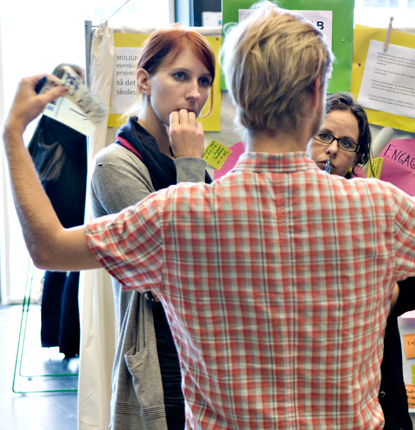All students bring a history of good and bad experiences and some fundamental assumptions concerning what and how effectiveness is best achieved. This means that the students of the group have different attitudes towards working methods and motivation, and different ambitions and success criteria for delivery. The better options a group has of finding a common ground and getting to know each other, the better chances the group has of handling potential professional and personal conflicts during an innovative process.
In the beginning of a process/a course the group members tend to be very friendly and forthcoming. A well-functioning group is in everyone’s interest, as is finding one’s place in a group where both approval and confirmation are received from each other. It is thus vital that the group, at an early stage and continually, work on the group’s internal dynamics. Group exercises at an early stage may help to provide a common basis in which both professional and social dynamics emerge. These dynamics are verbalized and thus stay as useful group experiences.


